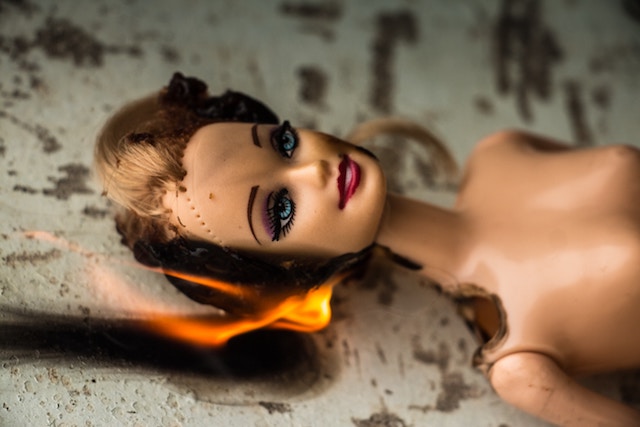
We hear about perfection frequently—that mythical creature—that rare beast a friend of a friend claims to have spotted in the wild once.
We hear about the perfect couple, the one that lived to a ripe old age without experiencing one fight, who died a natural death, still desperately in love.
We hear about the perfect man or woman, the one who nobody could possibly dislike, the one who was consistently patient, the one who never hurt anyone, the one who was so easy to adopt as a mother/father figure because everything they did was just so inspiring.
We hear about the perfect life, the perfect body, the perfect hair, the perfect lover, the perfect skill.
And despite the fact that we hear so much about all of this, there is only one place where I, personally, have encountered it: in the pages of books, created through the words of authors who describe people who don’t exist. Or on the movie screen, where everything is scripted and hours have been dedicated to make-up, hair, and airbrushing. Or on the cover of a magazine, where the model in question has starved herself all day to keep her belly from bloating, and then been photoshopped by experts until she no longer resembles herself.
The perfect couple has fought. Maybe often. Maybe to the point where one was convinced they would leave the other, where they no longer even saw a future with their partner any longer, but they still went back because they wanted to be with them at the end of the day. The perfect couple has slept in separate beds, hating one another at times. The perfect couple may not have even been in love by the end, but they did love each other.
The only reason they are deemed the “perfect couple” is because they lasted until death, and as a society, we tend to focus more on the end result than the journey.
The perfect man or woman has hurt people. Maybe even abused or bullied people. Maybe they were great to you, maybe they had even reached a point of maturity that by the time you knew them, they were a wonderful person, but not everyone had the same experience with them. Not everyone left that man or woman thinking that they were perfect.
Some people, in fact, left that person thinking that they were kind of a dick.
Perfect beauty is defined differently to different people. The perfect body is often a combination of a strict diet, a dedicated workout regiment, genetics, photoshop, and plastic surgery. The perfect artist painted a terrible painting and spent years mastering their craft.
And why am I saying this? Am I trying to undermine your vision of others? Trying to destroy the way you see your heroes, your idols, your parents’ relationship? No. All I am trying to point out is that when we hold ourselves and others to the ideal of perfection, we are holding ourselves to an ideal that does not exist, and it’s not fair to expect ourselves, or others, to be perfect.
In order to define someone or something as perfect, we are forced to ignore parts of them, whether that be something as small as their cellulite or as dangerous as the emotions of someone who the “perfect person” hurt. But whether we ignore those parts or not, those parts exist. And the fact that they exist can very well means something liberating to all of us.
Perfection does not exist, but what that really means is that we don’t have to be perfect. We can slip up. We can be wrong. We can yell and scream and be selfish and stupid and flawed, but at the end of the day, as long as we are still willing to work on ourselves, we can still make ourselves better.
We can still be there for someone and mean the world to them, even if we messed up and hurt someone else. We can still have a happy, meaningful relationship, even if we fight with our partner every now and again. We can still be beautiful, even if we don’t match society’s exact definition of what beauty is.
In fact, in some ways, it might even be healthier to escape society’s definition of perfection, because constantly forcing yourself to live up to an unrealistic standard ignores important parts of yourself. Chasing a definition of beauty that isn’t yours puts you in very uncomfortable, and sometimes painful—positions, and all for the payoff of shaving away your uniqueness. Not confronting your partner because you don’t want to fight builds up bitterness in your relationship.
So let’s stop upholding this non-existing idea of perfection. Let’s stop making people feel like they’re a failure if they’re human. And that doesn’t mean that we romanticize flaws instead—rather, we simply acknowledge flaws and admire the people who have them, but persevere nevertheless.
~
~
~
Author: Ciara Hall
Image: Tyler Morgan/Unsplash
Editor: Danielle Beutell
Copy Editor: Callie Rushton
Social Editor: Travis May











Read 0 comments and reply